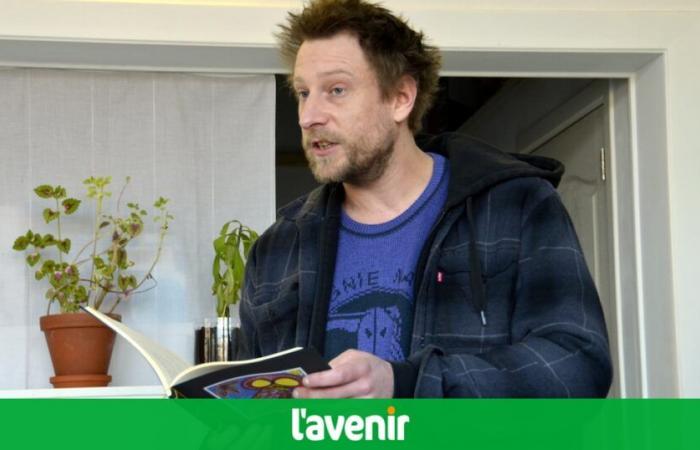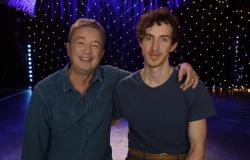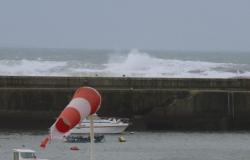
The visual takes its place, hailing the unusual: “He decides to raze a highway area, to plant a hut there. A flint to cut through nothingness. No one stops to watch him work, he plants his parasol in grass.”
The fugue resumes with a vengeance, in paintings full of places, cities and partitions, kitchens and bars, always linked by calls, stops and wounds.
“My pen leaked, hands full of bruises, I stick out my tongue, I speak words, I speak, I drool from the pen, I leak.” “Professions that do not exist cause a lot of ink to be spilled,” writes Hugo, who defines himself as a “cutting-edge attacking poet.” His activity is not limited to a few published works but extends elsewhere, sometimes far away, always returning to this street corner, home.
“My border, my line, when one of my nostrils touches Belgium and the other France, I sneeze on your wandering shops, of fry cages, of ten night-shops in a row, of pumps petrol, lyrical silence, lost customs become bar to rent or pizzeria flattened to make a little money.”
“Leaving the image”, Hugo Fontaine, Gros Textes editions, €6





